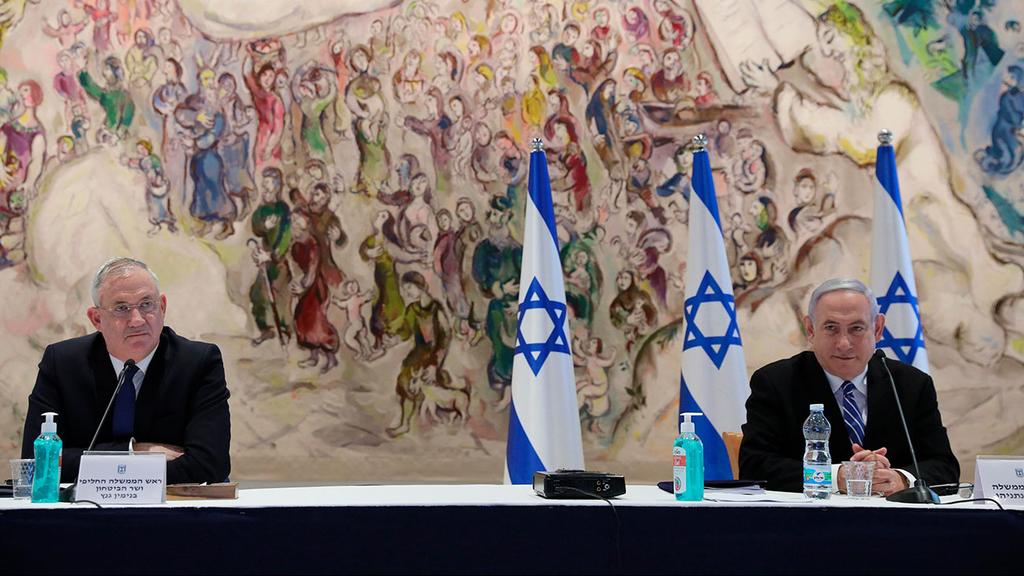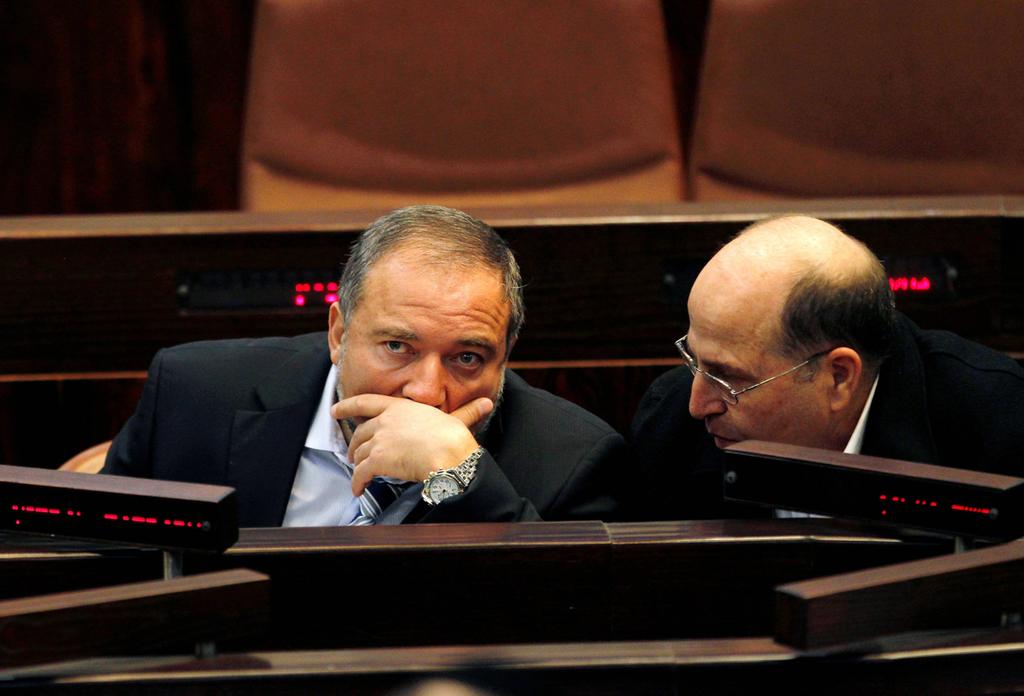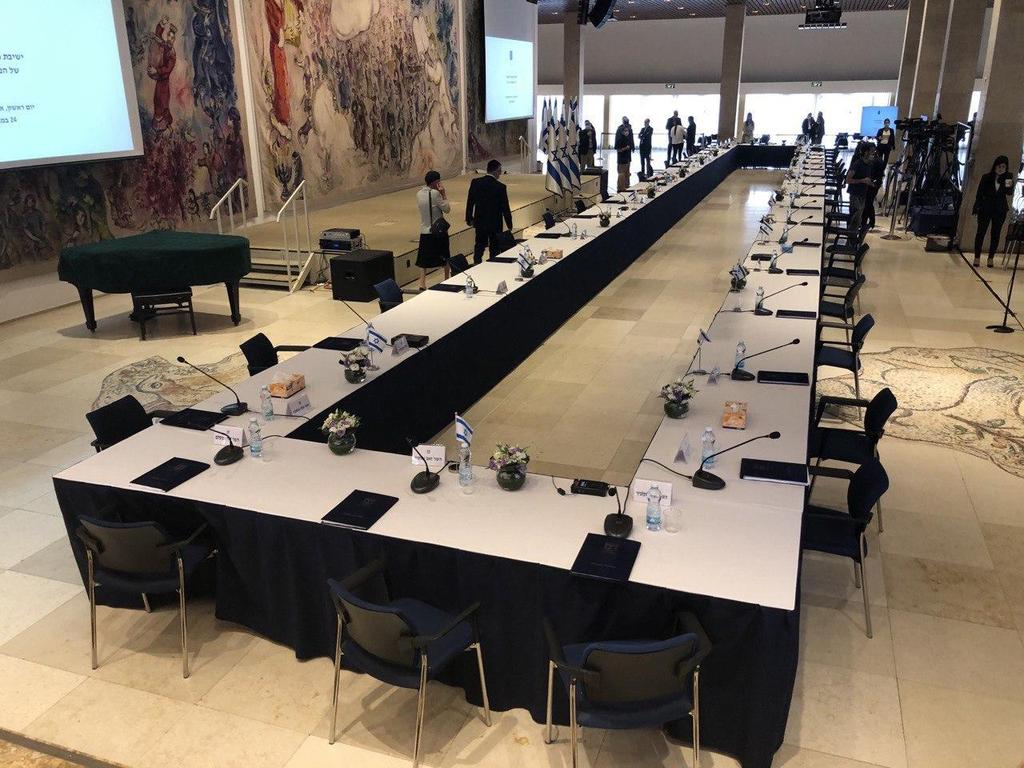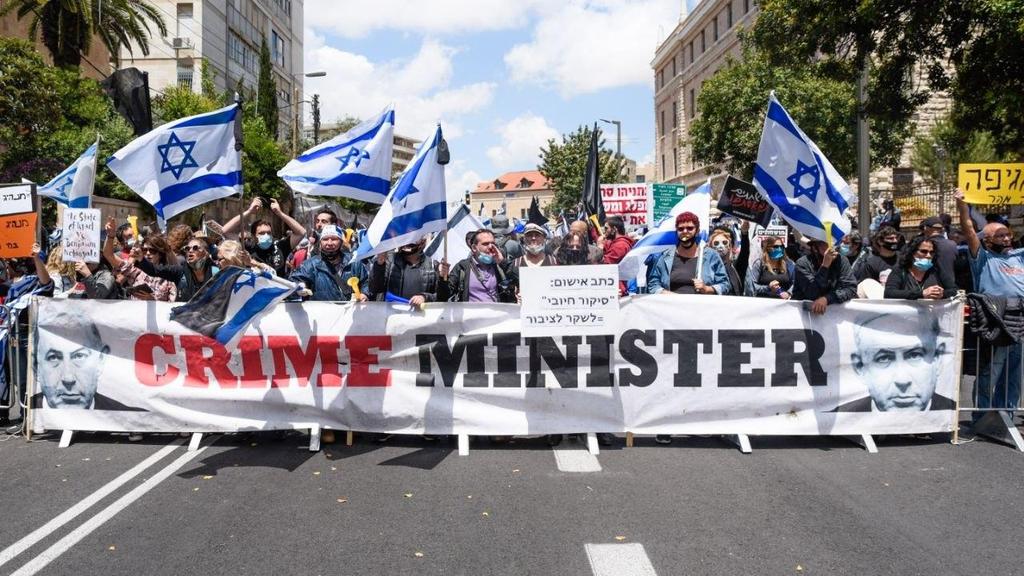In 1999, Ehud Barak was elected as Israel’s prime minister. As always, during the formation of the coalition, he hit a snag in divvying up the top jobs. So what did he do? He created a ministry from scratch.
And thus the Ministry of Regional Cooperation was born. It was Shimon Peres who was assigned to head it, and it is Likud’s Ofir Akunis who has been given the position in the new government.
5 View gallery


Benny Gantz and Benjamin Netanyahu head the first meeting of the new government in Jerusalem
(Photo: AP)
When the moderate religious Meimad party, which eventually united with Labor, also demanded its piece of the pie, Barak established the Ministry of Diaspora Affairs, with Meimad leader Rabbi Michael Melchior as its minister.
In 2005, the Ministry for the Development of the Periphery, the Negev and the Galilee was formed, and again, it was Shimon Peres who was assigned to its helm.
These days, Shas leader Aryeh Deri (who is also interior minister) is in charge, although why you would need a separate ministry for these areas of the country remains a mystery.
In 2006, the Ministry for Strategic Affairs was established, solely to provide Yisrael Beytenu leader Avigdor Liberman with a job. Two years later the ministry was shut down. Then in 2009 it was reopened for Moshe Ya'alon to lead.
5 View gallery


Avigdor Liberman, left, and Moshe Ya'alon have both served as minister for strategic affairs
(Photo: Reuters)
It has since changed its course, and in recent years, it has been fighting against the Boycott, Divestment, and Sanctions (BDS) global anti-Israel campaign. While this fight is truly important, why is it being waged separately from the Foreign Ministry?
The list goes on, redundant ministries have been established over and over again, all for the purpose of satisfying a coalition-building need.
Ministry of Jerusalem Affairs? Give me a break. We have a mayor in Jerusalem for that.
Now there is a Ministry for Water, one for after-school activities or something, and a host of other unnecessary posts. But Likud did not invent this form of employment, it only took it further than ever before.
After all, having a seat around the cabinet table is far more important for our elected officials than national and economic interests.
And yet, if this is the price we must pay for a stable government and the prevention of yet another unnecessary round of elections, and if it means the start of national reconciliation then it is a worthwhile price to pay.
Because the cost of chaos and political polarization is far higher.
We have been through a nasty 18-month-long election campaign in which we were told the judiciary would fall - but now a proponent of the judiciary is in charge of the Justice Ministry.
5 View gallery


Supporters of Benjamin Netanyahu demonstrate outside the home of AG Avichai Mandelblit following the prime minister's indictment
(Photo: Moti Kimchi)
We were told Prime Minister Benjamin Netanyahu would never see the inside of a court after his indictment on charges of bribery, fraud, and breach of trust, and yet on Sunday, his trial began.
We were terrified by the notion of an imminent attempt to pass a series of legislation that would put democracy in peril, but now we know no such laws will be presented in the Knesset.
Our polarization has not vanished though. The professional inciters both from the left and from the right do not rest. They will surely look for any opportunity to pour more oil on the fire.
A Bar-Ilan University survey showed 18.5% of Jews are "willing to act violently against Arabs," while 13.5 percent of those who define themselves as right-wingers are willing to resort to violence against those on the left. (Compared to 3.5 percent of those who define themselves as leftists, who are willing to resort to violence against those on the right.)
This is a minority of Israelis, but a dangerous and influential one with a considerable presence on social media and an effect on the public discourse.
The good news is that 63% of Jews in Israel support an amendment to the controversial Nation-State Law passed by the Likud-controlled Knesset in 2018, which states that Israel is solely the state of the Jewish people, by adding an equality clause that would encompass non-Jews as well.
The Israeli public is much more moderate in its views than their representatives in the Knesset.
The voice of the violent minority, even if it’s only verbal violence, is heard the loudest, and political rivalry is a hotbed for radicalization.
This oversized and bloated government can atone for all its sins by working to achieve a little more calm. Because the danger of polarization is far more serious than the waste it presents.
After all, the rampant distribution of ministries is nothing new. And while it is yet not clear whether this new government will be able to reduce the polarization, we should give it 100 days of grace - if not for its benefit, then for our own.



